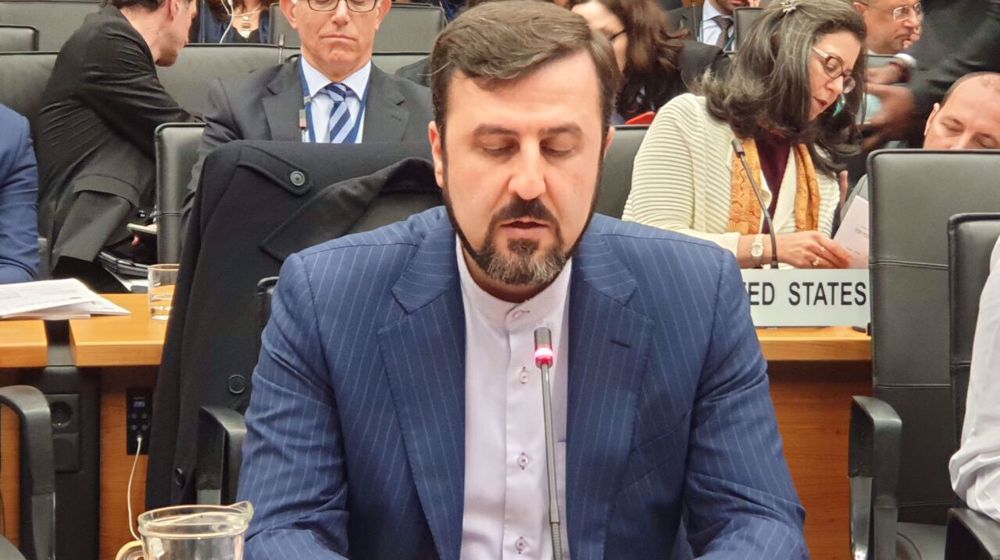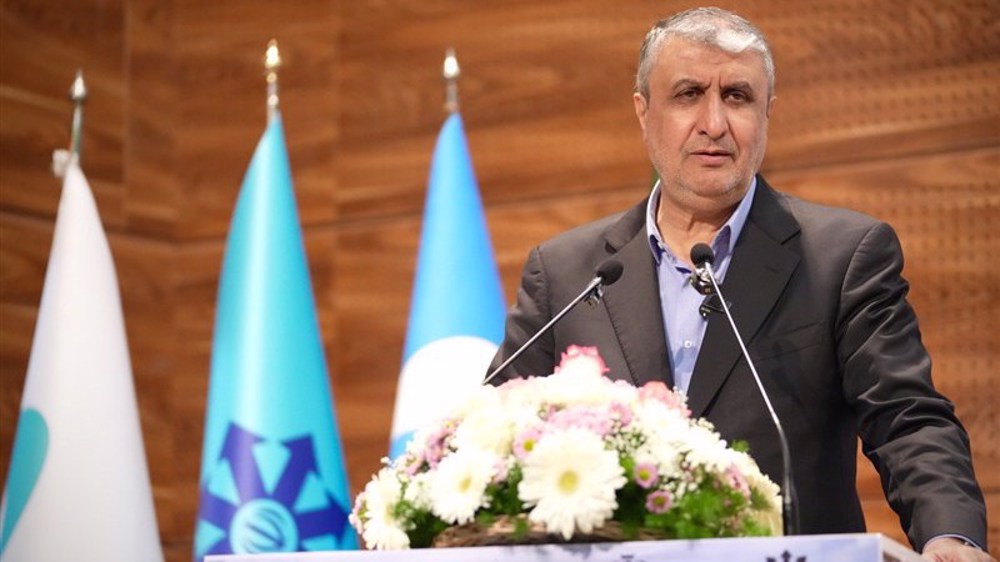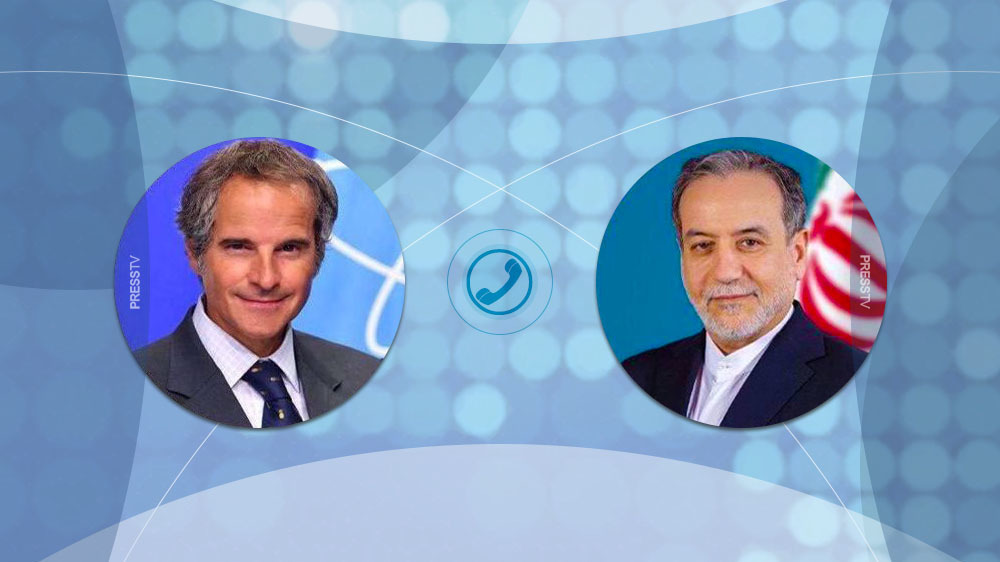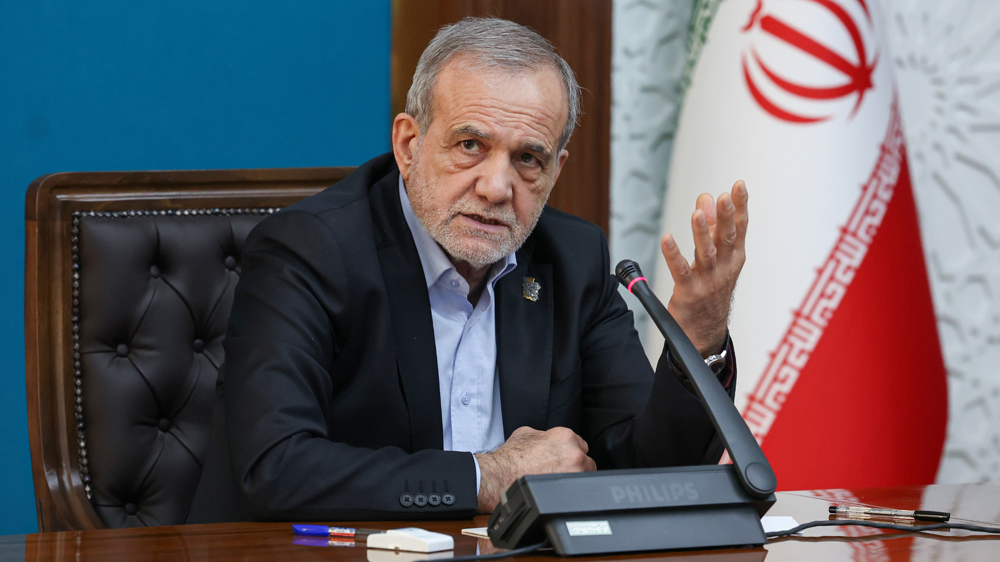Iran’s envoy: US yet to show determination to remove sanctions, help revive JCPOA
Iran’s permanent representative to Vienna-based international organizations says the United States has shown no determination towards removing its sanctions and returning to compliance with the 2015 Iran nuclear deal.
“It remains to be seen whether the United States has the necessary determination and readiness to give up its addiction to use unilateral coercive measures, respect international law, fulfill its commitments to fully and effectively remove sanctions [against Tehran] and make the necessary tough decisions in this regard,” Kazem Gharibabadi said in an address to a meeting of the International Atomic Energy Agency (IAEA) Board of Governors on Wednesday.
Three years have passed since the US took a “unilateral, unjustified” decision to leave the Joint Comprehensive Plan of Action (JCPOA), violate its commitments under the agreement, undermine UN Security Council Resolution 2231 that endorsed the accord, and pursue its “failed” policy of maximum pressure against Tehran, he said.
The Iranian envoy added that the extraterritorial dimensions of the US bans also prevented Washington's European allies from complying with their obligations stipulated in the JCPOA.
Gharibabadi referred to Iran’s countermeasures taken in response to US violations and as per a provision in the JCPOA regarding non-compliance of parties, but he noted that Tehran’s move to suspend some of its commitments did not affect its cooperation with the IAEA.
“Even under such circumstances, the IAEA was able to verify and monitor what Iran had done in this regard, which was recognized as "exceptional" cooperation even during the coronavirus outbreak,” he highlighted.
In his remarks, the Iranian envoy also pointed to the Vienna talks on the possible revival of the JCPOA and return of the US to full compliance.
He said that Iran has “robustly and purposefully” attended in the talks that have brought together the remaining signatories to the deal.
“It is important that the efforts lead to adequate guarantees that all sanctions will be removed in a verifiable manner, and we are not once again faced with a critical situation resulting from the US exit from the agreement, abuse of the mechanisms in the JCPOA or violations of all obligations under it while Iran has been fully committed to the provisions of the JCPOA,” he said.
He added that the ball was now in the US court to prove it was committed to international law.
However, “Iran, for its part, has time and again stated that it will reverse its compensatory steps and will resume its nuclear commitments” after the other sides have implemented their commitments, in particular, the removal of sanctions “completely, effectively and in a verifiable way,” he noted.
President Joe Biden has said he would rejoin the JCPOA if Iran first resumes its obligations under the deal left by the previous US administration in 2018.
Iran says the onus is on the US to revive the deal as it was Washington, not Tehran, that left the landmark agreement.
Since April, diplomats from Tehran and the P4+1 group -- Britain, China, France, Germany and Russia – have been holding talks in the Austrian capital to revive the JCPOA.
Key issues of dispute still remain unsettled in Vienna talks
Iran’s top negotiator Abbas Araqchi said on Wednesday that key issues of dispute remain unresolved in the Vienna talks, adding that the parties have differences over how to return to compliance with the deal.
“Negotiations have reached a point where there are some remaining key issues that need to be worked out. We will start a new round of talks next week and we hope to make progress on various issues, but it is too early to say whether this will be the last round of talks,” he said.
Araqchi, who is also the Iranian deputy foreign minister for political affairs, said the differences are not new, explaining that “there is disagreement over the main issues regarding how the parties will return to [the compliance with] the agreement.”
Last Wednesday, Araqchi had said there were still sticking points in the Vienna talks, but all parties agreed that the issues of dispute were not irresolvable and could be worked out.
Israel steps up bloodshed in Lebanon
US lawmakers move towards vote on limiting Trump’s Iran strike authority
VIDEO | Hebrew media talk ‘Board of Peace,’ ceasefire, anti-Iran rhetoric, tensions surrounding Lebanon
VIDEO | Rising tensions in West Asia
US: Police criticizes ‘excessive and disproportionate' force used by ICE on protesters
VIDEO | Press TV's news headlines
Trump administration 'turning against entire ecosystem of human rights'
VIDEO | Leader meets Qur'an reciters, teachers on first day of Ramadan











 This makes it easy to access the Press TV website
This makes it easy to access the Press TV website